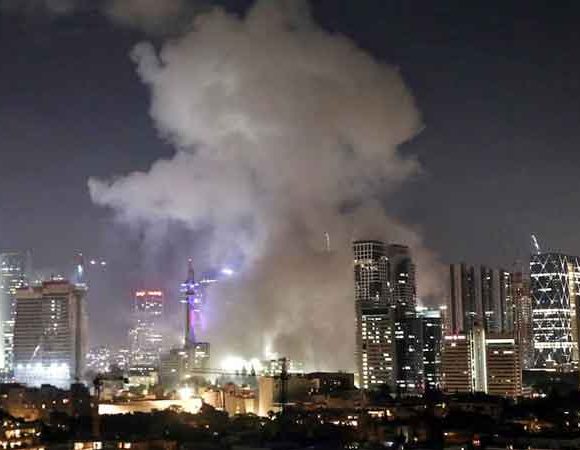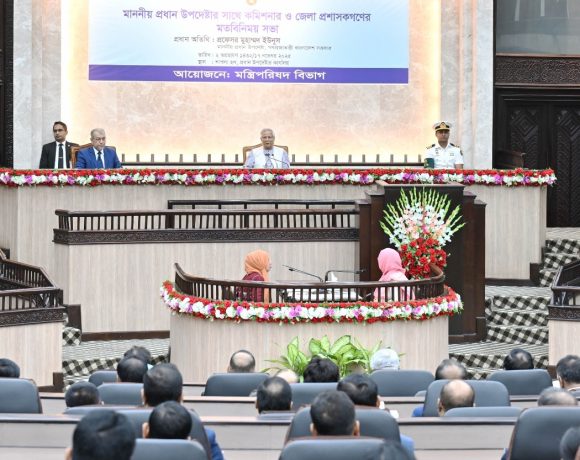July Declaration to be granted constitutional recognition: Chief Adviser

NEWS DESK
Chief Adviser Muhammad Yunus on Tuesday formally announced that the July Declaration, which commemorates the 2024 student-led mass uprising, will be granted state and constitutional recognition.
Reading the declaration from the steps of the South Plaza of the National Parliament in Dhaka, Prof Yunus said, “The people of Bangladesh desire that the student-people’s uprising of 2024 receive proper state and constitutional recognition, and that the July Declaration be included in the schedule of the reformed constitution by the government elected through the next national election.”
The event, part of a daylong programme titled “36 Days of July,” marked one year since the mass mobilisation that led to the fall of former Prime Minister Sheikh Hasina’s government. The July Declaration outlines a historical and political account of that period and sets out a vision for constitutional reform and democratic governance.
Leaders from multiple political parties—including the BNP, National Citizen Party, and Jamaat-e-Islami—stood alongside Prof Yunus as he read the declaration. Also present on the stage was Sabrina Afroz, sister of Mahbubul Alam, one of those killed during the July uprising.
The programme began with the national anthem and a one-minute silence in memory of those who died during the protests.
Highlights of the July Declaration
The declaration situates the 2024 mass uprising within the broader historical context of Bangladesh’s political evolution, starting with the country’s independence from Pakistan in 1971. It describes the uprising as a continuation of struggles for democracy, justice, and constitutional integrity.
It asserts that the post-independence constitutional process, particularly under the 1972 Constitution, fell short of public expectations due to structural flaws and political missteps. The document criticises the introduction of the one-party BAKSAL system by the then Awami League government and highlights the role of public uprisings in restoring multiparty democracy in subsequent decades.
Addressing the 16-year rule of the previous administration, the declaration accuses the government of pursuing undemocratic constitutional amendments and suppressing dissent. It also references widespread allegations of corruption, election rigging, and systemic rights violations.
In this context, the 2024 student movement—initially demanding reform of the public recruitment quota system—is portrayed as a catalyst for broader democratic mobilisation. According to the declaration, the uprising drew nationwide support and eventually prompted sections of the armed forces to align with protesters, leading to the collapse of the then-government and the formation of an interim administration on August 8, 2024.
The document states that the outgoing 12th Parliament was dissolved and that, based on Article 106 of the Constitution and the opinion of the Supreme Court, the interim government was constituted under Prof Yunus.
Pledge for Reform and Recognition
The declaration calls for democratic reforms to the constitution and state institutions to ensure free elections, good governance, and the prevention of authoritarianism. It affirms the public’s intention to seek justice for crimes committed during the anti-fascist movement and to provide legal protection to participants and victims of the 2024 protests.
It also declares those killed during the uprising as “national heroes” and expresses the intent to enshrine the July Declaration within the country’s constitutional framework.
The government announced that the declaration was finalised in consultation with various political stakeholders. It took over the responsibility last December following sustained protests led by the student platform *Students Against Discrimination*.
The document concludes with a pledge to establish a rights-based, inclusive, and environmentally sustainable democratic system—guided by the aspirations of the youth and grounded in the rule of law and constitutional order.














